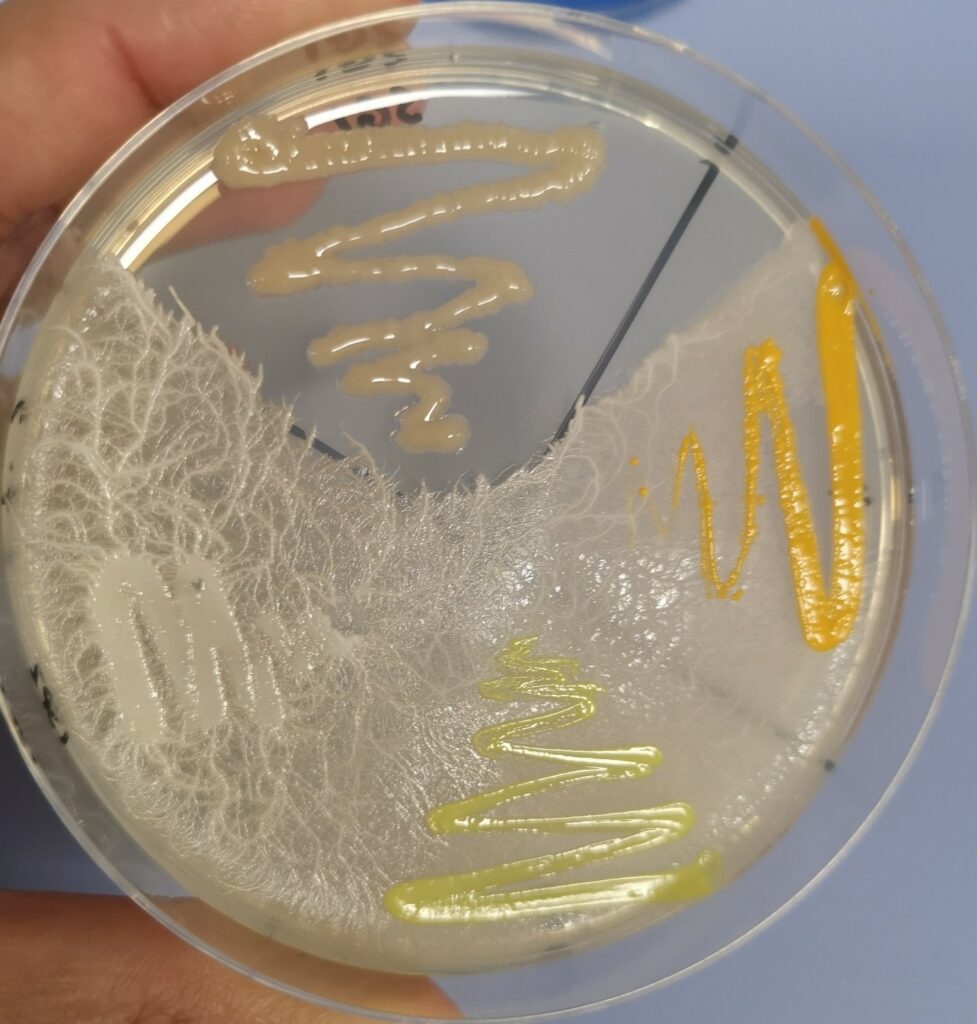At the beginning of this year, Dr Grant Garren January (University of Plymouth) who is a postdoctoral Fellow of the SA/UK ADD Hub Consortium, was awarded first prize in the category of Best Photographic Image – Research Staff for his submission to the University of Plymouth Images of Research Festival. This award-winning image depicts an isolation experiment, whereby bacteria were isolated from several marine habitats and their host organisms, which included seagrass, octocorals, worms, sea lemons, tunicates and sponges. This serendipitous discovery shows the untapped potential of marine microorganisms to produce potent antibiotic compounds and further supports the rationale to explore these environments in search for novel chemical entities. Check out the many awesome images submitted to the Festival’s here!
Here is Grant's winning submission!

Marine drugs for resistant bugs
The recent Covid19 pandemic has showed society the destruction that a single microorganism can cause across the globe. Antibiotic resistance, which is caused by drug-resistant bacteria, is following the same trend and has been considered the ‘silent pandemic’ long before SARS-CoV2 appeared. Antimicrobial resistance has the potential to kill 10 million people by 2050 if left untreated, which could surpass the predicted death tolls attributed to cancer and diabetes.
New drugs are needed to treat these drug-resistant ‘superbugs’. My research focuses on isolating novel bacteria and investigating their bioactive potential. I investigate marine plants and invertebrates from Plymouth to South Africa to Antarctica, with the hope of discovering the next breakthrough antibiotic drug. In this image, we see one bacterium attempting to colonise its surrounding neighbours BUT another bacterium stands its ground by producing an antibiotic compound to defend its territory. Could this be the next breakthrough antibiotic?